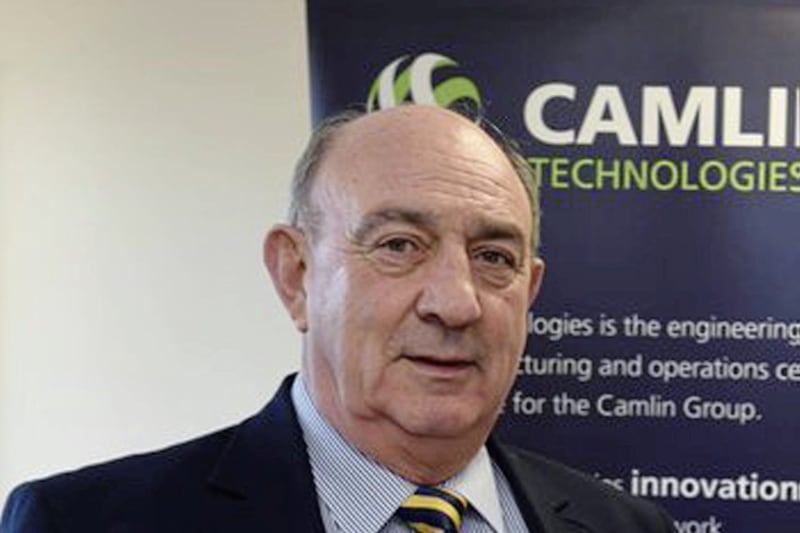THE boss of a Lisburn-based electrical manufacturing specialist has outlined ambitious plans to drive revenues through the £100 million mark within the next five years as it monetises a number of long-term contracts in the global energy and rail sectors.
Camlin Group chief executive Peter Cunningham also revealed that the company has made its biggest-ever investment in research and development - bringing spend past £50 million - as it works to grow specialisms like AI machine learning.
But he has also voiced alarm at how some of the financial technology companies coming into Northern Ireland, often supported by government grants, are engaging in a nefarious war for talent and “often just want to poach our tech staff”.
He added: “As an indigenous business, we feel so very strongly about this. We've got hot talent on our books, people with certain types of software skills, only to find that we're targeted by new entrants to the market who are too keen to poach.”
Cookstown-born Cunningham, speaking exclusively to the Irish News, said that Camlin - which has a global presence at facilities in 21 cities across 17 countries - is working to optimise the critical infrastructures that people, cities and communities around the world depend on, all day and every day.
In 2020, sales across the group grew to £40 million and profits to just over £4 million, and in the year just ended that is expected to grow to £43m, which is lesser growth than the company had anticipated (he attributes this to Covid and to chip shortages).
“But for this incoming new year we're building to get to revenues in the region of between £58m and £65m, which is growth in excess of 25 per cent, and profits up 30 or 40 per cent as well,” he said.
“And my ambition is within four or five years to push through the £100m mark, with a large portion of that being recurring and sustainable revenue, driven by the energy and rail sectors.”
He added: “Of the £60-plus million we'll do in 2022, well over half is already contracted, and it's just about execution for us now. Customers are now giving us the long-term contracts.
“For example, we're central to so much that the UK's local electricity network companies are doing around their Electricity Distribution 2 price control plans right up to 2028. We've never had those length of contracts before. It's normally been just year to year workloads.
“So, given that the backlog of work we've signed to and are committed to, it's not like we're starting to climb Everest, because we're already halfway up it.”

Camlin, which has a current payroll of 465 staff (which it should grow to 520 by the end of 2022) mainly in Lisburn but also in European satellite facilities in Bologna, Parma and Krakow, has made fundamental changes to the structure and strategy of the business over the last 18 months.
Key to this is investing in innovation and state of the art technologies to solve industry wide issues and support the UK in meeting its net-zero emissions target.
“Our technologies play a vital role in making energy networks more efficient and with this investment we hope to play an even more important role in making the network greener and enabling the energy transition,” Cunningham added.
He has identified key partnerships in its so-called tier-one territories of North America, Western Europe and the UK - so much so that Camlin will open up a second headquarters in the east coast of the US in the next 12 to 18 months.
“But we're now creating opportunities beyond tier-one. Enel, for instance, is one of the biggest power companies in the world, and we're now a strategic partner with them in Latin America.
“We also doing business with State Grid, a Chinese state-owned electric utility corporation. It is the largest utility company in the world, and as of 2020.”
Closer to home, Camlin has landed the contract with CrossRail to automate the system using pantograph modelling, an instrument for duplicating a motion or copying a geometric shape to a reduced or enlarged scale.
Cunningham adds: “We're using our innovative techniques to enable networks to perform more efficiently and make it easier to adopt low carbon technologies on to the electricity network.
“In the race to net zero, there has to be a speed of change in improving the networks, and we're one of the very few companies in the world that can help them make that transition quickly enough.
“I don't want to grow this business just for the money. It's much more than that. It's about the wider world. Personally, I want to leave a legacy. And what we're doing has to be bigger than me and bigger than Camlin.”








